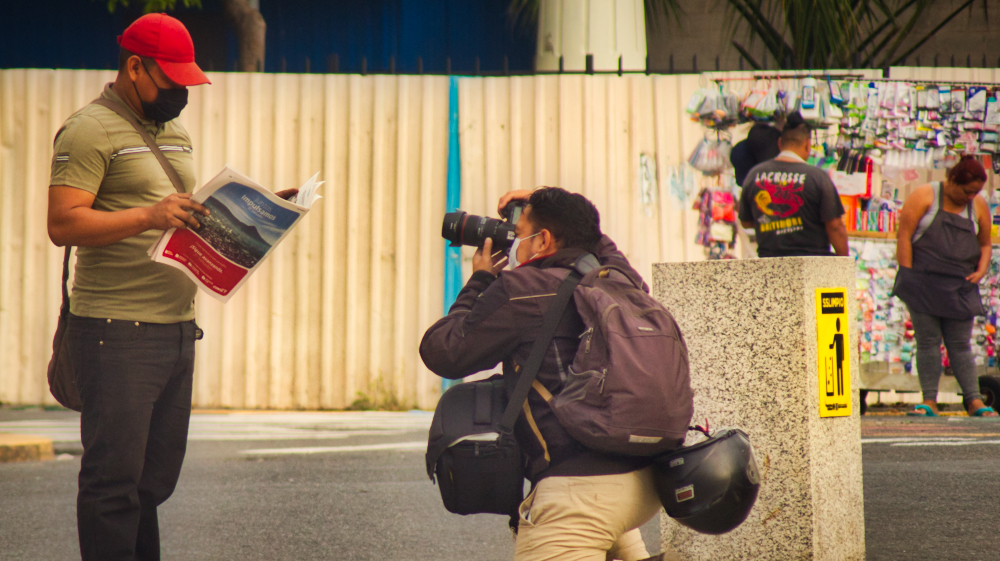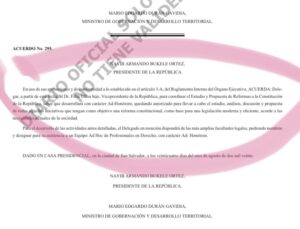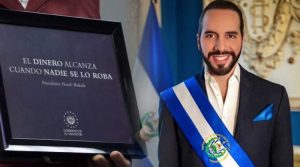Politics
The origins of Bukele’s newspaper
FACTUM reports:
The government of Nayib Bukele used subsidiaries in the energy sector to create his own newspaper. Perforadora Santa Bárbara, one of the La Geo companies, owned by Grupo CEL, established the public limited company El Diario Nacional (EDN), which registered the trademark Diario El Salvador, the official newspaper published by the Executive Branch since October 19, 2020.
The public limited company El Diario Nacional was incorporated in March 2020. 99% of the shares belong to Perforadora Santa Bárbara (PSB) and the other 1% to Compañía de Luz Eléctrica de Ahuachapán (CLEA), also owned by Grupo CEL (Executive Hydroelectric Commission of the Lempa River), the autonomous group that controls the sale of electrical energy in El Salvador.
Being a public limited company, under the umbrella of a subsidiary of Grupo CEL, allows the new newspaper to be off the radar of institutions that oversee transparency in the use of public resources. The Court of Accounts of the Republic does not have legal tools to fully audit CEL subsidiaries, such as La Geo or PSB.
“State companies manage them however they want, it is the perfect option to move money without controls. The Government Ethics Tribunal doesn’t even go there. And the only thing the Court of Accounts could do is see invoices, but it cannot check if that investment is efficient…” explained Carlos Palomo, a member of the Citizen Observatory to the Court of Accounts.
Lawyers who have worked in the electricity sector identify the subsidiaries of CEL as sources of petty cash for the last governments. The CEL affiliates, although they feed on public resources, are satellites because they act as private ones. They have all the freedoms of private companies: they can hire anyone, invest or buy without public control.
The Court of Accounts presented a proposal to reform its organic law at the end of 2019 to oversee public companies. They asked for unrestricted access so that “third parties who by any means receive and administer public resources, including trusts, subsidies and free loans” are subject to controls. But this initiative has not been successful in the Legislative Assembly.
(…)
Diario El Salvador is presented in its official accounts as a State company. On October 7, Bukele anticipated that it will have an online version, a printed version (…) and that it will be the one with the highest circulation.
“And before the 3%* start to criticize that we are using public funds, DIARIO EL SALVADOR will be a COMPANY, owned by the STATE, it will generate JOBS, PAY TAXES and it will be PROFITABLE. Its PROFITS will not be used to enrich anyone, but rather for SOCIAL BENEFIT works”, wrote Bukele on his Twitter account.
“Diario El Salvador is not going to live from circulation, from street sales (…), but we will ultimately live from the sale of advertising,” (Luis) Laínez told Noticiero El Salvador.
In its first edition, Diario El Salvador published 13 full-page advertisements. The majority, eight of them, were from state agencies controlled by the Executive. Yet another was from Grupo Samix, former President Antonio Saca’s radio group that is now controlled by the government.
One of the first opinion columns was written by the press secretary, Ernesto Sanabria.
The creation of a public company, such as the National Lottery, which sells tickets and then does charity work, requires legislative approval, explained José Marinero, an expert in administrative law.
“If a company made by private companies benefits from public resources, even if they say that all those benefits and profits are for all of us, that is a problem per se, it is a problem of legality, because what the State is doing is giving away resources without legal authorization for the corporation to exploit”, he added.
(…)
The Deutsche Welle consulted the Special Rapporteur for Freedom of Expression of the Inter-American Commission on Human Rights (IACHR), Pedro Vaca, about the role of public media in El Salvador. “The problem is not the existence of a public medium. The dilemma is what are the institutional brakes and balances to prevent them from becoming propaganda tools funded with resources from all citizens”, replied the rapporteur.
READ THE ENTIRE ARTICLE (IN SPANISH) HERE
*”3%” is the president’s catchphrase to refer to those who disapprove his administration (taken from the results of some polls). Some other terms he and his team use on social media are “los mismos de siempre” (the same as usual) and “mollera sumida” (Sunken head)



-300x225.jpg)
